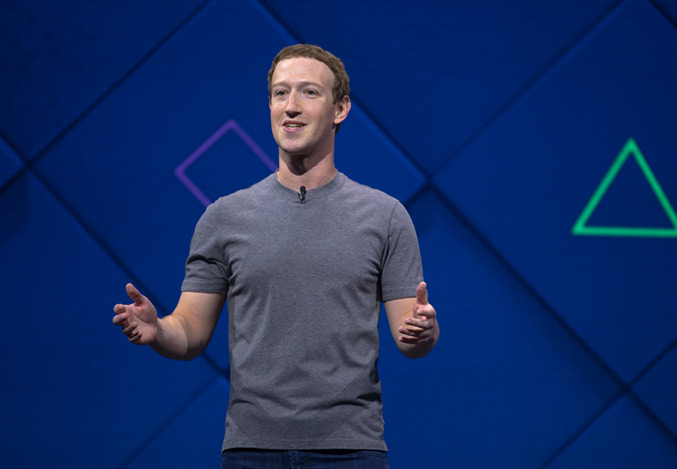 BACK
BACK
Thoughts
Everything Old, is New Again
By Tom Sullivan

So…stating the obvious…in the last couple of weeks…people have been freaking out over the Facebook and Cambridge Analytica hullabaloo. But I’m curious…why the sudden collective outrage?
Data mining is not new
It’s as old as the hills and arguably a key pillar of the information revolution. The big platforms make their money from advertising. If it’s free, you’re not the customer; you’re the product. Every browser you open…every app you use; your data is collected, to serve you the next ad or the next piece of content. Your data is being traded daily and every time you use Facebook, Instagram, Twitter, Google, YouTube, LinkedIn, et cetera, your data is captured. This is not new, and it’s been happening since the internet started serving ads. And even before that, lists of addresses have been traded since the first mail order catalogue company started in 1872, and direct marketing as we should call this was founded by Lester Wunderman in 1958.
I wonder…how psyched is Google about this? Seems that whilst everyone is focusing on Zuck in Congress, today…no one is talking about Google having WAY more info on you. This article claims ten times the amount.
Some people will say, “I get that my data is mined, and I guess I don’t really mind, if it means that the ads being ‘fed’ to me are relevant to my interests. I also get that corporations want to (and do) use that data to sell me more Cocoa Puffs, Haagen Dazs, and cars. It is a commercial world after all. BUT…when the information is being sold to third parties specifically to subvert the democratic process, to slander a political candidate, to promote Brexit, then that is just plain wrong.”
Political subversion is not new
Well…to say the democratic system is being subverted might be a bit much, or at least might be a case of selective outrage. That, too, has been happening for decades. For example, newspaper media has forever driven public opinion in political campaigns. And foreign policy has played its part in influencing voters in other country’s elections quite deliberately, not to mention the blatant biases that clearly exist in much of the fourth estate.
A tie to subliminal advertising
In a way, this latest kerfuffle reminds me of subliminal advertising. There was a time it was new. Then the public got wary. Then it was frowned upon. Loads of fun stuff on the rise and fall of subliminal messaging.
So, I wonder, will “data scraping” go the way of sexy hidden images in a Coca-Cola ad? Subliminal advertising was banned ages ago. What was the actual basis of the ban for subliminal advertising? Was it banned when it became too effective and freedom of choice was actually subverted by methods that were too subtle and sophisticated for an ordinary person to overcome? Do subliminal messages remove the ability to choose or critically evaluate a product because the ordinary person simply isn’t aware that they are being targeted by advertising, not being presented with facts to evaluate?
Where is the line drawn for advertising?
I’d say the line for advertising really is where advertising reaches a degree of effectiveness that removes the ability for the audience to effectively evaluate alternatives, thereby predisposing them towards a product. The Cambridge Analytica approach seems to pass this line. The added wrinkle is that this isn’t just any product… it’s a political idea, a party or candidate. Just because blunter ways of targeting / tailoring messages have been used in the past, it does not automatically justify far more aggressive, subtle, sophisticated methods. Especially methods so effective as to remove the ability to assess / determine alternative futures of entire nations.
Data’s impact on creativity
At the end of the day…we the people are the product, but as an industry we are the problem too. As data seems to have driven clients to care less and less about creativity, but more and more about clicks…we have been forced to make “data” central to our working, often at the expense of creativity.
McKinsey just published a piece about how tech is affecting, or could affect, creativity. For anyone producing content (all of us), the apprehensions might be outweighed by the opportunities it could provide. How can we begin to use, think about, lead our clients in discussing the potential?
A sad reality is…far too many clients have become risk-averse. Data killed the creative star…and…has ironically raised advertising and marketing to a new low. Here’s a little ditty I wrote about breakthrough creative, a few weeks ago.
Regardless…the outrage continues. I wonder how much of it is about the outcomes, as opposed to the means by which it was achieved. I think the politics of this being related to Trump has greatly driven the outrage. The principal of data use is certainly not new. Doth we protest too much? It’s certainly been fodder for the media. The rise of insincere editorials and sanctimonious op-ed pieces, rife with virtue signaling are becoming a bit too much.
Am I the only one who keeps thinking about Apple’s “1984” spot? Do we need to be saved from actual Big Brother? Are we officially in the dystopian future?


